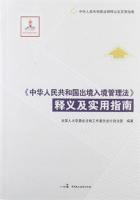While I am writing this there are accidentally before me some proposals for a declaration of rights by the Marquis de la Fayette (I ask his pardon for using his former address, and do it only for distinction's sake) to the National Assembly, on the 11th of July, 1789, three days before the taking of the Bastille, and I cannot but remark with astonishment how opposite the sources are from which that gentleman and Mr.Burke draw their principles.
Instead of referring to musty records and mouldy parchments to prove that the rights of the living are lost, "renounced and abdicated for ever,"by those who are now no more, as Mr.Burke has done, M.de la Fayette applies to the living world, and emphatically says: "Call to mind the sentiments which nature has engraved on the heart of every citizen, and which take a new force when they are solemnly recognised by all:- For a nation to love liberty, it is sufficient that she knows it; and to be free, it is sufficient that she wills it." How dry, barren, and obscure is the source from which Mr.Burke labors! and how ineffectual, though gay with flowers, are all his declamation and his arguments compared with these clear, concise, and soul-animating sentiments! Few and short as they are, they lead on to a vast field of generous and manly thinking, and do not finish, like Mr.Burke's periods, with music in the ear, and nothing in the heart.
As I have introduced M.de la Fayette, I will take the liberty of adding an anecdote respecting his farewell address to the Congress of America in 1783, and which occurred fresh to my mind, when I saw Mr.Burke's thundering attack on the French Revolution.M.de la Fayette went to America at the early period of the war, and continued a volunteer in her service to the end.His conduct through the whole of that enterprise is one of the most extraordinary that is to be found in the history of a young man, scarcely twenty years of age.Situated in a country that was like the lap of sensual pleasure, and with the means of enjoying it, how few are there to be found who would exchange such a scene for the woods and wildernesses of America, and pass the flowery years of youth in unprofitable danger and hardship!
but such is the fact.When the war ended, and he was on the point of taking his final departure, he presented himself to Congress, and contemplating in his affectionate farewell the Revolution he had seen, expressed himself in these words: "May this great monument raised to liberty serve as a lesson to the oppressor, and an example to the oppressed!" When this address came to the hands of Dr.Franklin, who was then in France, he applied to Count Vergennes to have it inserted in the French Gazette, but never could obtain his consent.The fact was that Count Vergennes was an aristocratical despot at home, and dreaded the example of the American Revolution in France, as certain other persons now dread the example of the French Revolution in England, and Mr.Burke's tribute of fear (for in this light his book must be considered) runs parallel with Count Vergennes' refusal.But to return more particularly to his work.
"We have seen," says Mr.Burke, "the French rebel against a mild and lawful monarch, with more fury, outrage, and insult, than any people has been known to rise against the most illegal usurper, or the most sanguinary tyrant." This is one among a thousand other instances, in which Mr.Burke shows that he is ignorant of the springs and principles of the French Revolution.
It was not against Louis XVI.but against the despotic principles of the Government, that the nation revolted.These principles had not their origin in him, but in the original establishment, many centuries back:
and they were become too deeply rooted to be removed, and the Augean stables of parasites and plunderers too abominably filthy to be cleansed by anything short of a complete and universal Revolution.When it becomes necessary to do anything, the whole heart and soul should go into the measure, or not attempt it.That crisis was then arrived, and there remained no choice but to act with determined vigor, or not to act at all.The king was known to be the friend of the nation, and this circumstance was favorable to the enterprise.Perhaps no man bred up in the style of an absolute king, ever possessed a heart so little disposed to the exercise of that species of power as the present King of France.But the principles of the Government itself still remained the same.The Monarch and the Monarchy were distinct and separate things; and it was against the established despotism of the latter, and not against the person or principles of the former, that the revolt commenced, and the Revolution has been carried.
Mr.Burke does not attend to the distinction between men and principles, and, therefore, he does not see that a revolt may take place against the despotism of the latter, while there lies no charge of despotism against the former.
The natural moderation of Louis XVI.contributed nothing to alter the hereditary despotism of the monarchy.All the tyrannies of former reigns, acted under that hereditary despotism, were still liable to be revived in the hands of a successor.It was not the respite of a reign that would satisfy France, enlightened as she was then become.A casual discontinuance of the practice of despotism, is not a discontinuance of its principles:
the former depends on the virtue of the individual who is in immediate possession of the power; the latter, on the virtue and fortitude of the nation.In the case of Charles I.and James II.of England, the revolt was against the personal despotism of the men; whereas in France, it was against the hereditary despotism of the established Government.But men who can consign over the rights of posterity for ever on the authority of a mouldy parchment, like Mr.Burke, are not qualified to judge of this Revolution.It takes in a field too vast for their views to explore, and proceeds with a mightiness of reason they cannot keep pace with.













